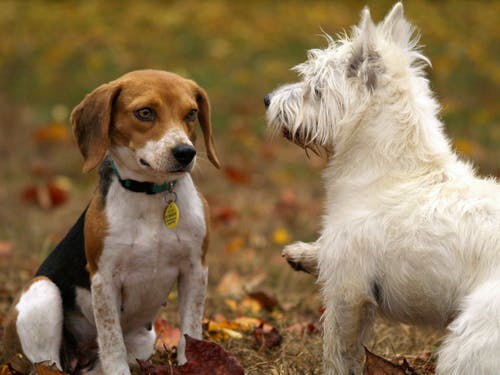
As pet owners, we cherish every moment we spend with our beloved companions. But how often do we think about the health of their eyes? Like humans, our furry friends can face many eye issues, and tackling them alone can be overwhelming. That’s where ocular vets come in. These specialized professionals are dedicated to keeping your pet’s eyesight in tip-top shape.
Let’s dive into the fascinating world of ocular vets and discover their importance in your pet’s overall health.
Who Are Veterinary Ophthalmologists?
Veterinary ophthalmologists, or ocular vets, are highly trained professionals specializing in diagnosing and treating eye problems in pets. After completing their general veterinary degree, these specialists undergo additional training in ophthalmology, ultimately earning their certification through the American College of Veterinary Ophthalmology (ACVO).
Benefits of Seeing a Veterinary Ophthalmologist
Ocular veterinarians possess specialized equipment and diagnostic tests to accurately identify and address your pet’s eye issues. With their extensive expertise in eye health, these professionals can work with various animal species, ensuring the best possible care for your pet.
Eye Health and Pet Vaccinations
Your pet’s overall health is intertwined with their eye health – this brings us to pet vaccinations in Memphis. Regular vaccinations help protect your pet against diseases like feline herpesvirus, which can lead to ocular issues. By keeping up to date on your pet’s vaccination schedule, you support their eye health and overall well-being.
Ocular Vets and Routine Vet Exams
Routine vet exams are crucial to maintaining a happy and healthy pet. These checkups often include an ocular examination, which can identify any potential issues before they escalate. However, if a problem is detected, your general vet may refer you to a veterinary ophthalmologist. These specialists have the resources and knowledge to address more complex eye conditions.
Common Signs of Eye Trouble in Pets
Identifying eye problems early is crucial for timely interventions. Keep an eye out for the following symptoms:
- Avoiding light
- Bulging eyes
- Keeping eyes closed
- Cloudiness or redness
- Discharge
- Excess tears
- Rubbing eyes or face constantly
If you notice any of these signs, consult your veterinarian or a veterinary ophthalmologist for further evaluation.
Diagnosing Eye Issues in Pets
A wide range of diagnostic tools and tests are at the disposal of ocular vets, enabling them to pinpoint the specific eye problem affecting your pet. These may include Schirmer Tear Test, slit lamps, fluorescein stain, and pupillary light reflex tests. Nailing down the exact issue is crucial for prescribing the appropriate treatment, so consulting a specialist is vital to your pet’s eye health.
Common Eye Conditions and Diseases in Pets
Your pet could be susceptible to various eye diseases and conditions, such as:
- Cataracts
- Glaucoma
- Cherry eye
- Dry eyes
- Pannus
- Herpes
Understanding the specifics of these ailments helps you and your veterinary ophthalmologist address your pet’s concerns more effectively.
Treating Pet’s Eye Problems
Treatment plans will differ depending on the diagnosis, ranging from medical interventions like antibiotics and eye drops to surgical options for more severe conditions. For breeding animals, it’s crucial to consult an ocular vet to ensure potential genetic eye problems are not passed down to offspring.
The Importance of Routine Vet Exams
As mentioned earlier, regular checkups are vital in maintaining your pet’s health. A crucial element of these visits is eye health assessments. General veterinarians can spot early warning signs of potential issues during these exams and refer you to a specialist if needed. A veterinary ophthalmologist should be involved in your pet’s care if severe eye conditions arise. These specialists can provide expertise and treatment options to address your pet’s needs. You may visit this link for more information on the importance of routine pet checkups.
Qualifying Your Veterinary Ophthalmologist
When choosing a specialist for your pet, ensure they’re appropriately qualified and experienced. Check their legitimacy on the ACVO website, and ensure they stay up-to-date with continuous training and education. Before visiting a veterinary ophthalmologist, prepare a list of questions to ask regarding your pet’s condition, treatment options, and potential outcomes.
Final Words
Keeping your pet’s eyes healthy is essential to their overall well-being. Monitoring their eye health and seeking professional guidance from a veterinary ophthalmologist can make a difference in their lives. Stay proactive about caring for your furry friend’s eyes, and don’t hesitate to consult an ocular vet if issues arise. By working together, you and your specialist can ensure your pet enjoys a lifetime of clear, bright-sighted adventures.
